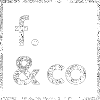Collaboration and Creativity in Colombia
Last week, at the initiative of professor Edna Bravo, our co-founder, Louis-Félix Binette was invited by the Faculty of Physical and Mechanical Engineering of the Universidad Industrial de Santander, in Bucaramanga, Colombia, to share his reflections and experiences on creativity, collaboration and entrepreneurship. Here is his report on this short series of conferences and workshops on the theme of creativity and innovation, and on the generation of new business ideas.
The main event was a keynote speech in front of about 300 students, researchers and professors of engineering and industrial design, where I presented, while there were calls for a generalized strike (as attested by the piles of desks at the entrance of the university's buildings), a portrait of the information era and how it's transforming the old habits developed in the last two hundred years of industrial revolution.
« You are creative! »
My first message meant to reinforce both students and practitioners that engineering and design are among the principal sources of creativity in our societies. Even though the term "creative" is often reserved to artists, it's designers, engineers, scientists and, more and more, entrepreneurs and managers, who, faced with the daily challenge of solving new problems, must constantly explore new solutions, which then open vast possibilities for artistic exploration.
New energies, new challenges.
I was inspired by the work of Canadian thinker Michel Cartier to invite attendees of conceiving of information as a new form of energy. Thanks to engineering, mechanical energy, since the early days of the industrial revolution, was harnessed to replace the muscular work of humans and animals. New technologies are infusing a new form of energy in our systems, which acts as a new layer atop older forms: the energy of information, knowledge and ideas.
This profound transformation is bringing a new complexity to our world, in great part due to the massive virtualization of entire swaths of human action. It is also making it increasingly difficult to distinguish between technological interest and economic and social issues, which are all more tightly intertwined than ever. Thus, tomorrow's engineers and designers will be creating and selling less and less objects and machines; they will rather put their know-how and creative potential to the service of grand projects for society.
It was impossible to conclude such a discussion without providing some insight into emerging methods and approaches (C–K Theory, design thinking, storytelling, serious play, etc.) that, drawing on the power of collaboration, allow to create new wealth out of this complexity. We followed this rather theoretical presented with a series of more targetted workshops meant to road test the collaborative dimension of these new ways of organizing work.
Creativity in the Age of Information from f. & co on SlideShare
Learning by doing.
A co-creation workshop meant to let the roughly sixty participants (students, university employees, faculty and a handful entrepreneurs) come up with projects to transform their city was a pretext for experimenting with dynamic brainstorming techniques: LEGO, storytelling, brainwriting, mindmapping, etc. While iterating through a storm of post-its, the pillars of the ideal city for Colombian youth emerged: environmental stewardship, citizen participation and social justice.
We held an exploratory workshop with students and faculty from construction project management specialization in civil engineering, where we explored questions that are making the news even outside Montreal. How can we better build the city? Creativity and collaboration can bring new energy to project teams and generate substantial innovation. To illustrate it, participants, who already had plenty of field experience, had to submit to the Marshmallow Challenge. We then explored the potential benefits of a project management that would be more collaborative, distributed and fun (or even "gamified") in order to better face the challenges of complexity than hierarchical structures.
Finally, I had a productive exchange with seasoned managers enrolled in the Executive MBA program of the Universidad Santo Tomas, a two-year, weeknights and weekends commitment. We looked at knowledge management and what new practices can emerge when you broaden the spectrum of what is deemed to be "knowledge". We looked at the impact of collaborative, participative, grassroots and start-up-style initiatives on productivity, innovation and employee satisfaction, and at how these processes could be blended into existing structures of large organizations to foster the emergence of fresh ideas, new business models and greater intrapreneurship.
It's a long trek from Montreal to Bucaramanga, especially when you leave home at 4 am, have epic connections in Miami (eight hours) and Bogotá (thirty minutes) and land at the half-renovated BGA airport not long before midnight. And it doesn't get any better on the way back. Luckily, Colombian hospitality lives up to its fame. But for three and a half days, I got to exchange on the transformations of our society and their impact on work, creativity and life with such a variety of interesting people that I would say it was well worth the sore back. From academic and professional relations to new friendships, the future bodes well for future f. & co (ad)ventures in Latin America!
Conferencia magistral de Louis-Félix Binette [Spanish translation] from uisvideo at livestream.com


